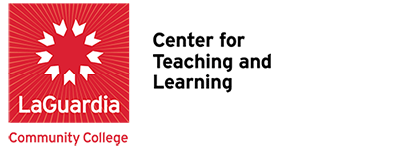
Unsettling Colonization: CTL’s Carnegie Seminar on the Humanities and Decolonization, 2023
The National Indian Brotherhood/Assembly of First Nations issued a policy paper, in 1972, entitled “Indian Control of Indian Education.” Credited as one of the earliest calls to decolonize education, the document sets forth three core principles: self-pride; understanding others; and harmonious relations with nature. The decolonization movement accelerated in the early decades of the twenty-first century, propelled by two key events: the explosive #RhodesMustFall in 2015, and, three years earlier, the publication of Tuck and Yang’s foundational text “Decolonization is Not a Metaphor,” which cautions that decolonization means nothing short of the return of land to indigenous peoples dispossessed by settler colonialism. That is, the motivation to decolonize at home and abroad—whether the classroom, universities, museums, disciplines, fashion magazines, the music industry, the humanities, the list goes on—matters little. Until it is returned, repossessed, rematriated, the land upon which decolonizing efforts unfold remains stolen.
Full disclosure: The Carnegie Seminar on the Humanities and Decolonization (Spring 2023–Fall 2023) was originally named The Carnegie Seminar: Decolonizing the Humanities. Tuck and Yang haunt that change; they keep watch over word and deed. To eliminate a metaphor is easy. But rematriate? During our first monthly session, after one of several readings of “Decolonization Is Not a Metaphor” (the paper’s deep; a mind changer, it warrants multiple readings), I said, “Well, we can’t give back all the land.” To which, Cheri Carr, ever-wise, replied, “Not yet.”
Fortunately, our twenty seminar participants are equally wise, equally hopeful. Some know colonization first-hand, their countries invaded by empire, their personal histories marked by exploitation, by flight and struggle. It’s also fortunate that everyone is patient because setting out to traverse the literature on the history, philosophy, theory, and legal processes of decolonization is a vast undertaking. Accordingly, we’ve narrowed our focus to explorations of the ways colonization and empire construct what and how we teach, learn, and evaluate; and how we interact with each other as persons within a complex educational system that preserves the continuity of colonial values and ways of being. Our task is to stay within the limits of what’s possible over the course of sixteen hours spread across monthly Fridays in LaGuardia’s spring and fall 2023 semesters. Dear Reader, you are right; that’s very little time, especially when factoring in the obligation to create a paper relevant to the topic of decolonization within the disciplines for In Transit: The LaGuardia Journal on Teaching and Learning scheduled for publication in spring 2024.
And yet! We are making our way forward, constructing knowledge together, doing our best, despite Zoom’s digital flattening, to relate circularly, to listen attentively to insights and questions that have emerged from our readings and viewings. On the Carnegie ePortfolio, we respond to assigned texts and reflect on our classrooms and everyday lives. We recognize connections between our seminar and work previously initiated in sister communities like SURJ. In these ways, we encourage each other—and you, too, dear Reader—to unsettle our pedagogical practices, to identify and undo, to continue undoing, the legacies of settler colonization, empire, and Eurosupremacy in our disciplinary epistemologies and institutional ways of being. (Reading lists available upon request.)
Tuck and Yang argue that decolonization means land back, primarily and absolutely. If we aren’t there yet, perhaps we can make progress toward that goal by (re)turning our minds and the minds of those learning with us to the concept of land. Inspired by the Assembly of First Nations’ core principles, all of us, in the Carnegie Seminar and across all the disciplines, can create encounters with meanings of the land itself. This year’s Carnegie participants are attached to humanities disciplines—theatre, art history, literature, design, philosophy, and the social sciences. Their understandings of decolonization can animate classroom and campus activity in topics such as indigeneity, settler colonialization, land theft, disease, sovereignty, racialized capitalism, reparations, rematriation, reclamation, and Native American pedagogy, which is holistic and attuned to harmony in relations with people and nature. Research in these areas is intended for In Transit publication in spring 2024. We will keep you posted on our progress!
In closing, we acknowledge members of The Carnegie Seminar on the Humanities and Decolonization: Ljubica Depovic and Michele Manoukian CTL Estefany Gonzaga CTL and CUNY Grad Center Elliot Jun CUNY Grad Center Ana Maria Hernandez ELA Kelly Aliano, Paul Fess, Patsie Ifill, Anna Voisard English James Caldwell, Cheri Carr, Arianna Fernandez, Lorelei Guttman, Jaime Riccio Humanities Toni Foy LPAC Cory Feldman, Alcira Forero-Pena, Michael Murphy, Dusana Podlucka, Rebecca Tally Social Sciences.
Thank you for the lightheartedness you bring to our relations with each other and for making the seminar a kind of home. Special acknowledgements go to Estefany Gonzaga, expansively thoughtful co-facilitator of the CTL’s Reading Collective on decolonization: your branches are wide, healing, and always reaching. To Elliott Jun, seminar working partner and co-facilitator: thank you for sharing resources, abundant knowledge, experience, time, and conversations about everything, all of which have deepened awareness of the complexities of decolonization. You’ve got the best laugh!
In closing, the Carnegie Seminar acknowledges that the land upon which we teach and learn is the traditional territory of the Lenapehoking, and we do affirm “the land designated as ‘New York City’ to be the homeland of the Lenape (Lenapehoking) who were violently displaced as a result of European settler colonialism over the course of 400 years. The Lenape are a diasporic people that remain closely connected with this land and are its rightful stewards.” https://www.relativeartsnyc.com/



